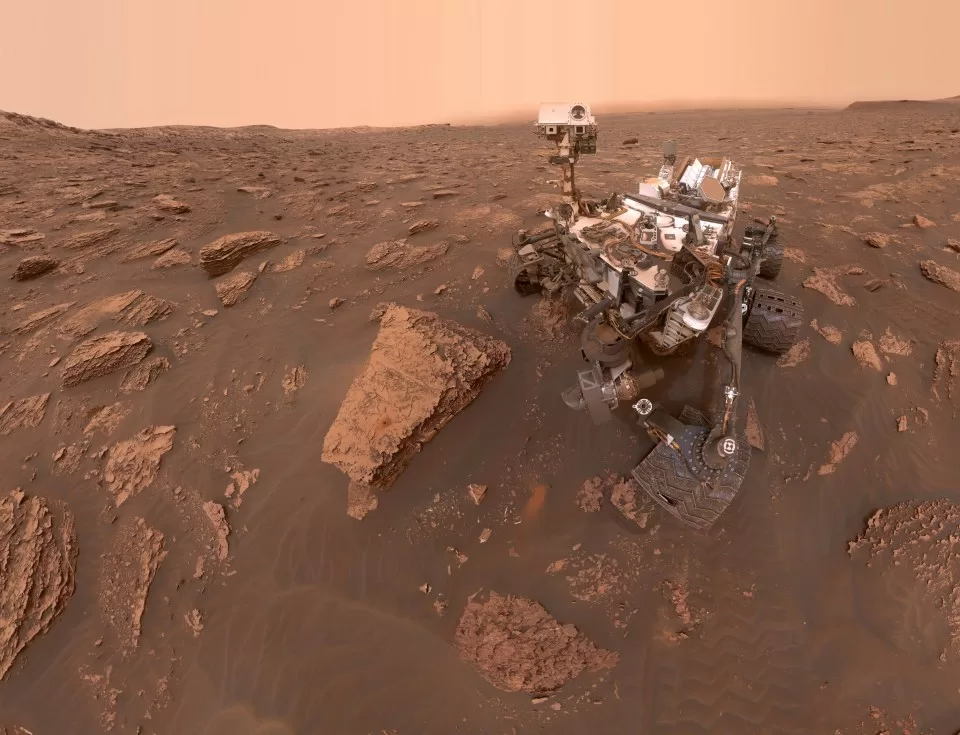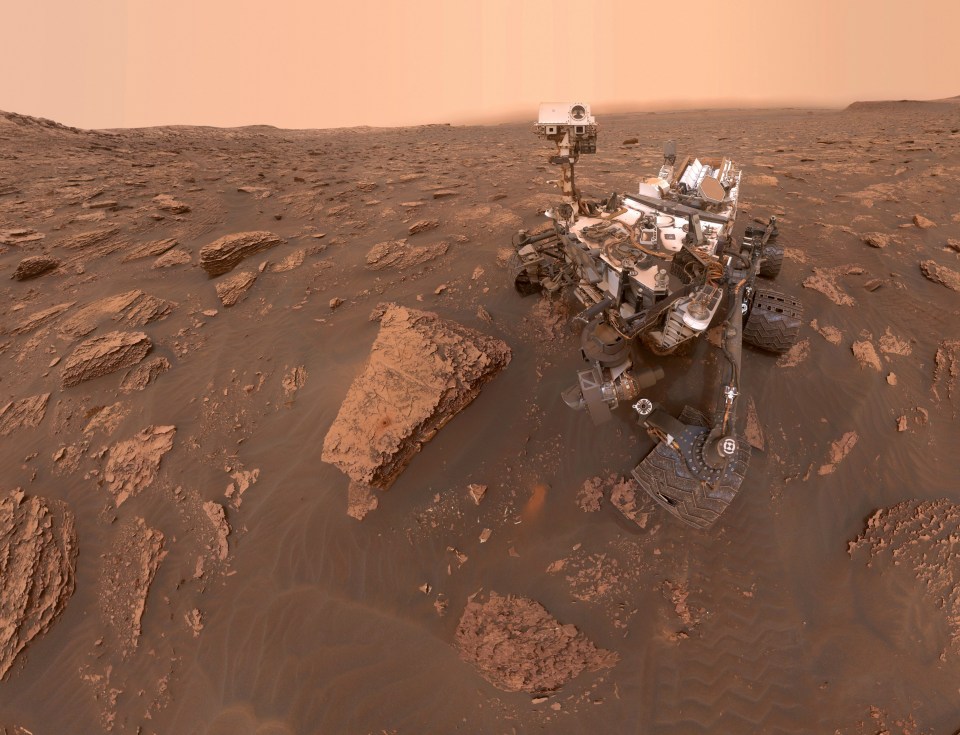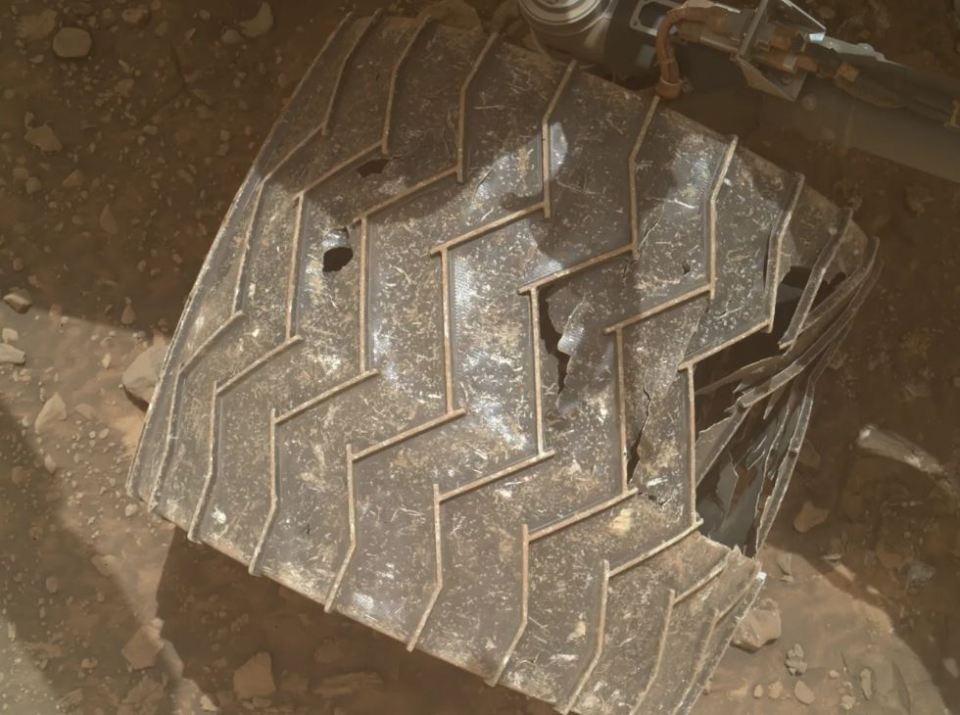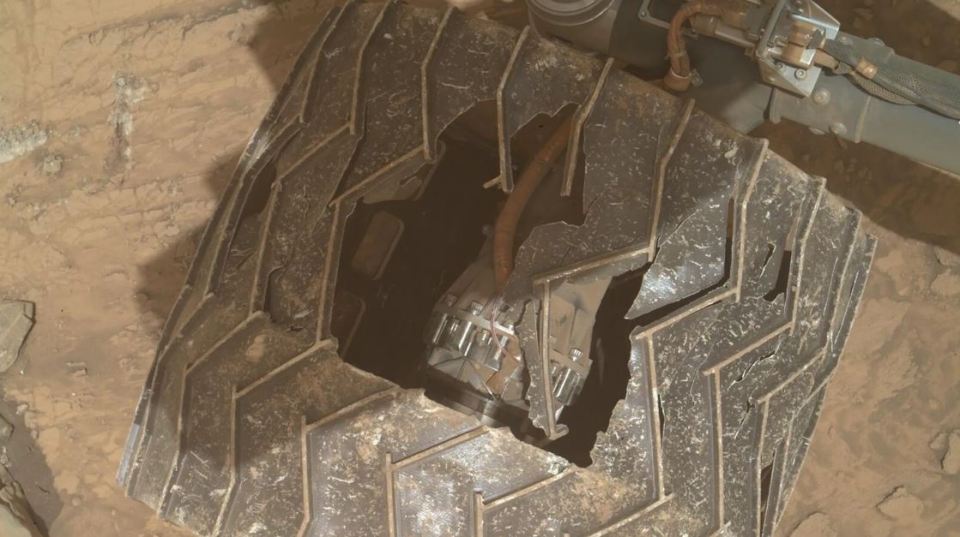A robot on the hunt for signs of alien life on Mars has taken a huge battering, shock new images released by Nasa show.
The Curiosity rover has been busy gathering rocks for more than 12 years to workout whether the Red Planet was ever able to support life.
It’s been exploring the Gale Crater since 2012, clocking over 20 miles.
But the lengthy visit has taken its toll on the device, after surviving multiple dust storms and Mars’ challenging terrain.
Images released by Nasa show Curiosity’s wheels have sustained some extensive damage.
They show very clear gaping holes in the aluminium wheels.
Curiosity has six wheels in total.
Fortunately, Nasa doesn’t appear to be too worried about the damage.
The $2.5billion (£1.9billion) machine is “still holding up well despite taking some of the worst abuse from Mars”, according to Ashley Stroupe, Mission Operations Engineer at Nasa.
Holes and tears grew quite a bit in Curiosity’s first year on the Red Planet.
Since then, experts controlling the bot have been trying to avoid nasty environments to prevent further holes.
They’ve also issued special updates to adjust speed.
“The wheel wear has been cause for concern, and although we estimate they have years of life still in them, we do want to reduce that wear whenever possible to extend the life of the wheels,” Art Rankin, part of Nasa’s test team, said back in 2017.
During it’s time on Mars, Curiosity has stumbled across an array of mysterious objects.
The space agency recently revealed it found yellow crystals that “shouldn’t be there”.
Did you know…
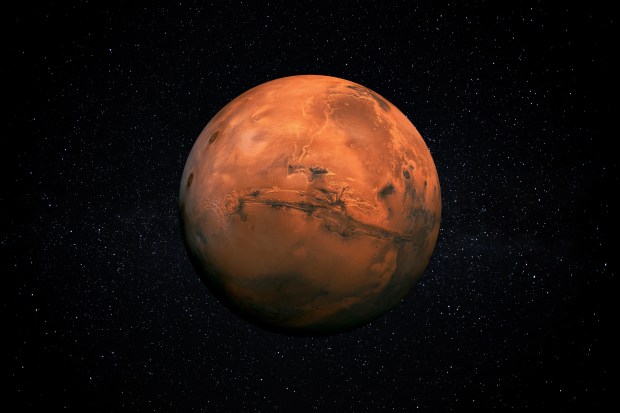
- Mars is the fourth planet from the Sun
- It is named after the Roman god of war
- The landmass of Mars is very similar to Earth but due to the difference in gravity you could jump three times higher there than you can here
- Mars is mountainous and hosts the tallest mountain known in the Solar System called Olympus Mons, which is three times higher than Everest
- Mars is considered to be the second most habitable planet after Earth
- It takes the planet 687 Earth days to orbit the Sun
- The planet has a diameter of 4,212 miles, and has an average distance from Earth of 140 million miles
- Martian temperatures can vary wildly, reaching as high as 70F/20C or as low as -225F/-153C
Curiosity has certainly defied the odds, far outliving the two-year mission time period it was originally given.
These days the bot isn’t alone on Mars, with the Perseverance also investigating on the surface.
Nasa built thicker, more durable wheels for Perseverance to avoid the sort of damage seen on Curiosity.
Car-sized Perseverance has been on Mars since February 18, 2021.
Water on Mars?
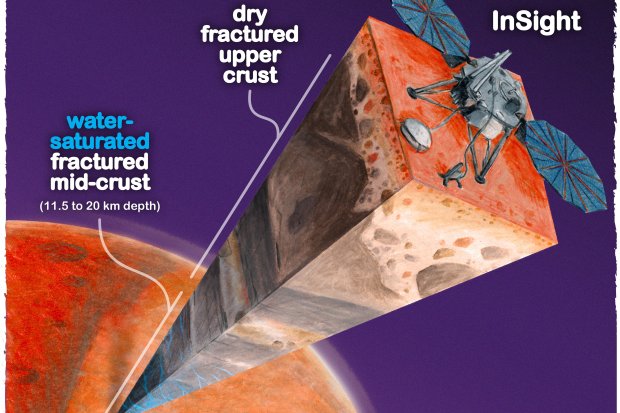
Scientists recently discovered a secret reservoir of liquid water on Mars…
It was enough water to cover Mars with a mile-deep ocean.
This was made possible using data on seismic activity collected from Nasa’s InSight lander.
The lander was active on Mars from 2018 to 2022.
Scientists created a model of rock physics – just like one used on Earth to map underground water and oil.
And it applied this to data from the InSight lander to see if it could find water on the red planet.
Researchers found that the data is “best explained” by a deep layer of “fractured igneous rock saturated with liquid water”.
Scientists knew that Mars had flowing surface water, but this vanished 3 billion years ago when the planet lost its atmosphere.
Frozen water on the polar ice caps can’t explain all of it, which is why this study is important.
